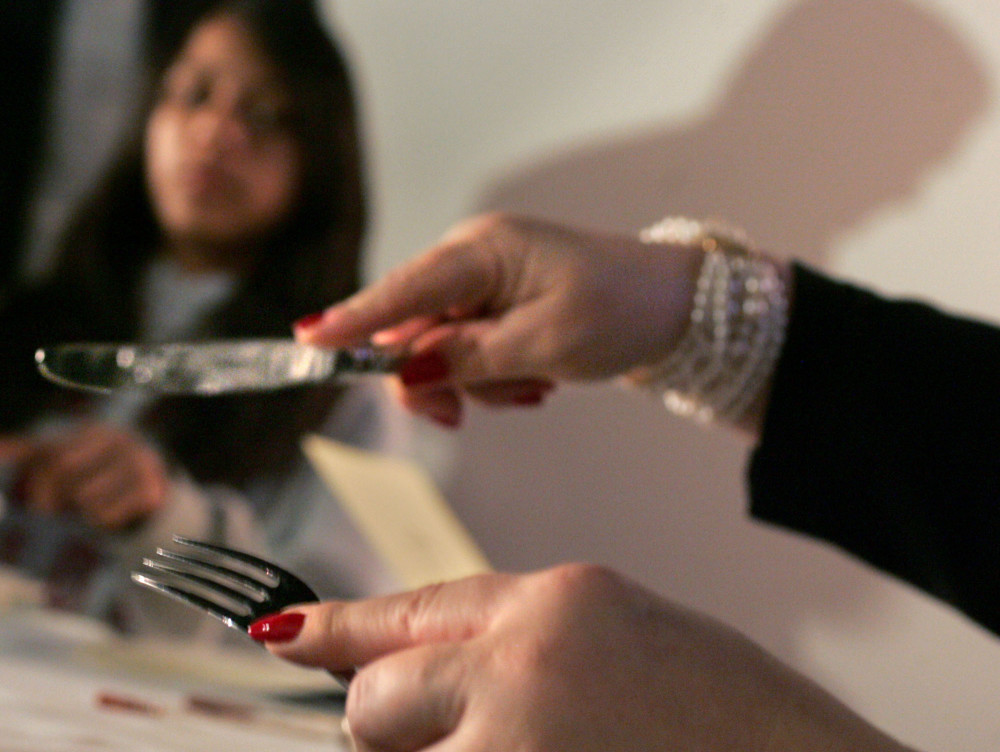By Diane Stafford
The Kansas City Star
WWR Article Summary (tl;dr) Mary Jean Billingsley, who created her “Lasting Impressions” training company after a career in universities, isn’t trying to be a Miss Manners nitpicker. She says a person can become comfortable with the basic etiquette one needs in the American work world in just an hour-and-a-half session.
The Kansas City Star
Mary Jean Billingsley travels around the country to present etiquette and business protocol training, often in top-drawer environments, where professionals haven’t a clue.
We’re talking law firms where recent law school graduates display ignorance or disregard of basic manners. We’re not talking about the fine points of organizing a formal receiving line. We’re talking where to put your cellphone, what to do with your napkin, how to make casual conversation.
“It’s widespread,” Billingsley says of the cluelessness. “It’s not about socioeconomic status. It’s that casual has become the norm to the point that people need to be reminded that etiquette speaks volumes about you and about you representing your firm.”
Billingsley, who created her Lasting Impressions training company after a career in universities, isn’t trying to be a Miss Manners nitpicker. She says a person can become comfortable with the basic etiquette one needs in the American work world in just an hour-and-a-half session.
But, she adds, one has to believe that it matters, that etiquette equals civility, and that we share responsibility for communicating and treating others respectfully.
Here are some of her top suggestions for conveying that civility:
-Make eye contact. She partly blames time spent on phone and computer screens for a “heads down” habit that inhibits personal connections.
-Pocket your phone on vibrate when in job interviews, business meetings or meals. Employers repeatedly tell her about applicants who take phone calls during interviews or conduct phone conversations over a business lunch. Your phone shouldn’t be placed on the table.
-Don’t confuse casual conversation with chumminess. Keep your private opinions private and remember that you’re establishing a personal impression and representing your firm.
-Mealtimes, Billingsley observes, can set landmines for poor manners, if not just clumsy behavior. She counsels against stretching to shake hands over the table; stand up and walk around to the other person’s chair.
-Other basics: Don’t start eating until everyone at the table is served. Chew with your mouth closed. Excuse yourself to another location if you have to take a phone call. If alcohol is an option, limit your intake. If there’s a table host, try to follow the host’s lead on whether drinks or dessert are appropriate.
-Learn about place settings. Generally, you’ll use the outside fork on your left (for salad) and outside knife on your right (for bread) first, and work your way into the dinner fork and meat knife. Forks or spoons for dessert are at the top of your plate. Your drinking glasses are to your right. Your bread plate is to your left.
-Put your napkin in your lap when you sit down and place it on your chair if you have to leave the table temporarily. Don’t stack empty plates. And be polite and gracious to the serving staff.
When you exude natural confidence in the situation you’ll make a better impression.














































































































































































































































































































































































